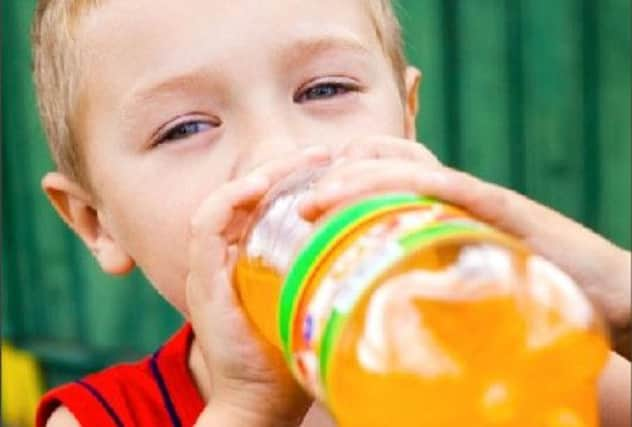High energy snacks and drinks link to bowel cancer


In a major study that has implications for the notoriously sugar-rich Scottish diet, researchers studied the dietary habits of more than 2,000 patients diagnosed with bowel cancer and compared them to the food and drink intake of a similar-sized healthy population.
The scientists, from Edinburgh and Aberdeen universities, analysed the data and found a statistical association between bowel cancer patients and high consumption of what they described as “high energy snack foods” and “sugar sweetened beverages”.
Advertisement
Hide AdAdvertisement
Hide AdThe high-energy snacks covered a wide range of foods with high fat and sugar content and included crisps, biscuits, cakes, chocolates, nuts and sweets. The sugar-sweetened drinks included both fizzy and fruit drinks.
Official government surveys carried out by the Food Standards Agency have found that the intake of non-diet soft drinks, confectionery, biscuits, cakes and pastries among Scottish children – particularly in older children and those living in more deprived areas – is “considerably higher than recommended”.
Bowel cancer accounts for almost ten per cent of all cancer cases and for eight per cent of all cancer-related deaths. It is the fourth most common cancer in the UK and around 40,700 people in Britain were diagnosed in 2010 – around 110 people every day. Unlike some other cancers, rates for bowel cancer have remained relatively stable for over a decade.
Previous research has shown that there has been a north-south divide in bowel cancer incidence since at least the 1990s. The most recent data shows that the highest incidence rates are still in areas of Scotland, Northern Ireland and the north of England for males. However, a clear divide across the UK is much less evident for females.
The study, which will be published in the European Journal of Cancer Prevention, also factored in known cancer risk factors such as weight, smoking and lifestyle.
Lead author Evropi Theodoratou, of Edinburgh University’s School of Molecular Genetics and Population Health Science, said: “Some of the risk factors were novel, including the intake of ‘high-energy snack foods’ and the consumption of the sugar-sweetened beverages (SSBs). To our knowledge this is the first study to report an association between these factors and colorectal [bowel] cancer. These particular snacks and drinks have not been identified as risk factors for colorectal cancer before.”
She added: “We found that the odds of having colorectal cancer were 18 per cent higher if a diet was high in high energy snacks and sugar sweetened beverages. It is an interesting concept, because these foods are becoming more popular in western diets.”
The link remained significant when other factors such as an individual’s body mass index (a measure of weight in comparison to height) and physical activity were taken into account.
Advertisement
Hide AdAdvertisement
Hide AdTheodoratou emphasised that although her team had found a link between foods with a high energy density and sugary drinks, there was not enough evidence to prove that they caused bowel cancer.
She said: “These positive associations do not automatically imply causal relationship between these risk factors and colorectal cancer as they can be confounded by other risk factors that we failed to account for. However, they merit further investigation from large studies as they can be very important for public health, especially since their consumption has been reported to be increasing in industrialised countries.”
The study also identified known risk factors for bowel cancer such as a family history of the disease and a high total calorie intake.
It also confirmed that taking a class of medicines called non steroidal anti-inflammatory drugs is associated with a decreased risk of bowel cancer. Commenting on the study, Jessica Harris, senior health information manager for Cancer Research UK, said: “While this study on its own can’t show for sure that these foods are linked to cancer risk, it’s still a good idea to limit the amount of high-sugar and high-calorie foods and drinks in your diet. Having too much of these types of foods can lead you to put on weight, which we know is linked to higher risks of bowel cancer.
“The best ways to reduce the risk of bowel cancer are to cut down on alcohol, get active, eat a balanced diet and aim to keep a healthy weight.”
Professor Mike Lean, chairman of human nutrition at Glasgow University School of Medicine, said: “We can’t yet start saying that this science shows that these foods cause bowel cancer. But we are fairly sure that eating more fruit and vegetables and taking more exercise can prevent cancer.
“It is always useful to have this sort of information. But it may be that part of this is that people who have cancer are inclined to blame the disease on what they eat and on the foods they believe are bad.”